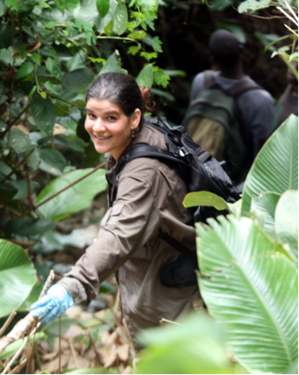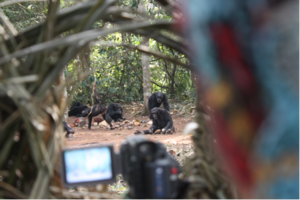Alumni Association
Professor William McGrew (University of Cambridge)
10 November 2011
![]()
Core-to-Core Programme
Project title: Primate Origins of Human Evolution (HOPE)
Japanese Lead Scientist: Prof. Tetsuro Matsuzawa, Primate Research Institute, Kyoto University, Inuyama
UK Counterpart: Professor William McGrew Centre for Human Evolutionary Studies, Department of Biological Anthropology, University of Cambridge
Project Duration: 2004 to 2009
Primate Origins of Human Evolution (HOPE), 2004-2009
Project description
Inter-disciplinary cooperation among primatologists interested in the modelling of human origins, based on studies of living non-human primates, especially the great apes, which are humans' closest-living relations. We will never know directly our extinct ancestors, who are long dead and gone, but we can compare and contrast ourselves with those living organisms which whom we last shared common ancestry. Project concentrates on behaviour, and its underlying cognition, as studied both in nature and in the laboratory, especially primate archaeology.
Institutions involved
Main participants are Primate Research Institute, Kyoto University, Inuyama, JAPAN, Institute of Evolutionary Anthropology, Max-Planck Gesellschaft, Leipzig, GERMANY, Department of Anthropology, Harvard University, Cambridge, USA, and Leverhulme Centre for Human Evolutionary Studies, Department of Biological Anthropology, University of Cambridge, UK
Collaboration instigation
Prof. Tetsuro Matsuzawa (PRI) approached leading experts who study chimpanzees in field and captivity: Profs. Christophe Boesch and Michael Tomasello (Max-Planck), Prof. Richard Wrangham (Harvard), and Prof. William McGrew (Cambridge)
Funding
For Cambridge, funding was used to pay for field research on wild chimpanzees in Africa, including equipment and supplies; travel and subsistence to collect and analyse data in Africa and in Japan; travel and subsistence to present findings at scientific conferences, both national and international.
Benefits
Main benefits for Cambridge participants have been access to only chimpanzee field study that combines observation and experimentation, at Bossou, Guinea. Additionally, unique opportunity to combine behavioural research on apes with archaeological study of early hominin artefacts in Kenya.
Collaborative outcomes
Six persons, two staff and four students, from Cambridge spent up to three months in 2010 at PRI, working directly with Japanese colleagues. Multiples visits by Prof. Matsuzawa to Cambridge have opened up new lines of cooperative (see next section). Many publications in high-quality journals and books have appeared.
Further applications
HOPE has been succeeded by ITP-HOPE. From Cambridge, we have won further grants from public (European Research Council, 1.5 million euros) and private (Leverhulme Trust, 110 k pounds) sources to extend the research, all of which involves personnel from PRI

PhD student Susana Carvalho excavating stone tools of chimpanzees

Observer’s view of wild chimpanzees in the forest at Bossou, Guinea
PDF version (129KB)
















